|
1) Do acknowledge them Hello. Talk to them when they come in. Show some interest. Get to know them. 2) Do show respect Grow up. Kids want to be treated like an adult, this is one area in which that works. 3) Do provide food Yum. Food always works. Feed them. Even let them have access to the kitchen. 4) Do be some fun Duh. Do something unexpected from the normal routine. Be a little playful. 5) Do avoid confrontations Yield. This isn't the time to correct your kid. Do that later, where you can discuss. 6) Do remember them Notice. Names, siblings, & unique things about them. Also, how your kid knows them. 7) Do make it peaceful Zen. An environment that's void of contention makes a place people want to be. 8) Do leave a little space Exit. Give them some room. Not the bedroom. But, some talking space to be private. 9) Do like them Enjoy. Everyone has annoyances. Overlook them. See what your kid sees. Be open. 10) Do keep long hours Nap. It doesn't have to be 'open all night' but kids like late nights. Especially weekends. Bonus: Do treat them like family Include. Everyone wants to belong. Somewhere. Make it you and yours that they think of as 'family' when they need to connect. How you interaction with your kid's friends, and your kid, will benefit everyone. What do you do?
0 Comments
Did a little surfing down memory lane and came across an article that I contributed to a long time ago and forgot about. It was about TV viewing and what can be done to curb the amount of time watching it. (We've never been big television watchers. There's just so many other really fun things to do.) I'm glad to report the things I said yesterday (relatively speaking) are still valid today. You can see if you agree.
If you've got going back to school on your mind, here is an article at OnlineSchools.com that might give you some inspiration. It also happens to quote me and tell a little about my experience going back to school. (I'll share a few more tips another day, after I know which ones aren't going to be used for another article.) Going back to school was really hard but very worth it. An investment in me and our family.
PS Other articles I've contributed to. Last year I read an article and did a post about my New Year resolutions going in a new way. Here is part of what I said in 2011, "...after reading this article I realized that Christine's idea of picking a word as a guide for the year, something to "become", was a better fit for me now." This year I am looking back on that to see how it went. My guide word last year was "FOCUSED" and I found that is was simple and it became a sort of mantra for me. With whatever I did I went back to "focused" for guidance because that's what I was looking for in my life. It was helpful and the first 8 months went really well. The last few got a little, unfocused. I think the thing I would do differently to avoid that is to put the word up for me to see, somewhere, and so I could remember near the end of the year. Maybe by the 8th month "focused" was just more ingrained and less conscious. Whichever way, I liked it and I'm going to try it again this year. So I have a new word for 2012... It's "finish". On New Year's Day I went through many words thinking about what I wanted to have guide me and I am really in a need of finishing things. When I think of this guide word it makes me think about what I am going to take on, because I have to finish it. It makes me think that if it will help me be more thoughtful and balanced. It makes me think of what is on the table now, and finish it.
Kind of ironic because this post sat here for several days before I actually finished it, to post it. So, my guide word "finish" is very fitting. Well, yesterday I talked about gift giving. Today I have something else on my mind. This morning I read an article about a NYC public school teacher who told her class of second graders, during a geography lesson, that there was no Santa. She was discussing the North Pole and the children assured the teacher they knew where the it was because Santa lived there. The teacher decided to clarify that myth and said that there was no Santa. Also, she felt a need to tell them that it was their parents who put presents under the tree for them, not Santa. What exactly that had to do with geography I don't know. After the article, there ensued a back and forth in the comments section about whether kids should be told the truth, if they should even be told to believe in Santa at all, and every opinion in between. I have issues with Santa myself. I've never told my kids there was and never told them there wasn't. When they asked me I would always respond with, "What do you think?" Sometimes they'd say what they thought and sometimes they didn't. I let them talk. So, the belief in the man Santa has been perpetuated very little, if at all, in our home. But, the spirit of Santa and Christmas has. As an artist I'm very aware of symbols and their use. We use symbols in society all the time. Santa Claus is a symbol. A collective symbol of the intangible attributes of joy, wonder, mystery and surprise that we have few other means to share and pass on. For most of society we have mutually agreed to do that. Just as we've nationally decided that the American Flag is a symbol of patriotism, wedding rings a symbol of fidelity and love, and yellow ribbons a welcoming back home. Whether we choose to embrace these icons and the ideas they represent are personal choices. A lot of times people get so emotional that they miss the mark about what the problem is. The real issue with this situation is that this teacher believed, and acted on the idea, that it was her RIGHT to tell these children. She decided that Teacher usurps Parent. Put another way, Teacher displaces, supplants, confiscates, or cuts out Parent. This is a policy that is being perpetuated in some schools - teacher has more right than a parent to decide - on many issues like gender, sex, and religion. The problem with not seeing the core issue is that Parent then relinquishes, surrenders ands hands over their right to Teacher. This teacher decided in that moment, without care, concern, nor consensus of others, that she would take on the role of Parent. In her "truth-telling" did she really have regard about how the truth was told? How the children might respond to it? That it might shatter their (not her) belief system? Is this truth age appropriate? Did she let parents know that she would be busting this tradition so that they could be prepared for the aftermath? Did she let the parents know after the fact with a note home? Did she teach about symbols in society? Did she teach about the different methods of gift giving? Did she teach about celebrations? Did she teach any historical context? These are things a real parent are concerned with. That differentiates Teacher and Parent. This teacher didn't care enough about the children, nor was she willing to take on the real role of parent, to consider the outcome and welfare for those children. I for one want to be a real parent, not some make-believe one that this teacher is trying to be.
Quotes that inspired me this weekend. Designed them so they might inspire your home space.
Click here to download. I do not know where people, religious people in particular, get this idea in parenting but it exists - If we do this (whatever it is) then we are guaranteed to get that (whatever is attached to this). Okay, I kinda do know where the idea comes from, religiously speaking. But, how did we start applying it to parenting? And in "apply it to parenthood" I mean - If I do 'this' then my kids will (guarantee) to do/get 'that'. By espousing that application we've created a parent trap - satisfaction guaranteed. Parent Trap: Satisfaction GuaranteedHow do we know if we are in this trap? It's framed in our real lives something like this, "We've taught her/him better than that, this shouldn't be happening." Try this, "We've never done X in our home, how could (s)he get into that." Or this, "We've gone to church every week, I don't know how this could happen." If you've heard or said that, it's the snare of thinking that our efforts at being good or doing good as parents are somehow guarantees that our children will be good and do good. As parents we want an outcome (great kids) so bad that we walk willingly into this trap.The reality is that there are no guarantees in parenting. Let me repeat that - Parent Reality: There are NO Guarantees in ParentingLet that settle in a little. That can be an overwhelming realization. Which is naturally followed by thoughts of "why bother", "what's the point" or "I can't win" in parenting. But that's just looking at the problem from one point of view. Albeit a compelling one. But, to truly know where you stand on something you've actually got to move around it a bit. Let's look at it from this angle - Knowing there are no guarantees of good kids gives you permission for freedom. This is kind of cerebral but I'll try my best to explain my thoughts. Now that we are released from the previous parent trap we can switch it around a little, get in a different mental position. What about this - "since nothing is guaranteed I am free to try whatever I think might bring about what I am hoping for." Or, "If I do this and it's not guaranteed to come out that way then I am free to try something else." If the "input" doesn't guarantee "output" then you are free to add other things, omit things, and be creative in what we bring to the parenting table. For example: You want spirituality for your youth. You take them to church thinking that the action will "guarantee" spirituality. When you realize there are no guarantees from that act then you can add other ideas (like surrounding your child with spiritual friends, having one on one discussions about your spiritual journey, or give them instructions on how to personally pray) thus increasing the possibility, not the guarantee, of a spiritually strong youth. It's not being good or doing good as a parent that's the problem. It's the unrealistic expectation that what you do guarantees what they will be. Now, that doesn't mean just give up on things that have been proven to give the greatest benefit to children. We always want to increase ours, and their chances at success. But, to unequivocally expect certain results, regardless, is a parent trap. Here are 5 tips to help get past the trap and increase the likelihood of satisfaction.
Checklist for Change • 5 Tips1. Release yourself from the trap. Acknowledge that what you do may not produce what you want. There are no guarantees to parenting outcome. Free yourself from that thinking. 2. Release your child from being the maker for your parent satisfaction. Your child's behavior shouldn't be how you judge your efforts as a parent. Your parental expectations should be independent of their choices. 3. Do things from a different angle. Keep your eyes on what you think is helpful or needful for the child, not the intended outcome. Listen to your parenting instincts. 4. Don't let other's set the trap for you. Don't be held to someone else's expectations of "should", "shouldn't", "would" or "wouldn't". And don't succumb to the pressure of other's comments or criticism, instead, deliberately dictate the direction you want your parenting to take. 5. Be patient with yourself and your child. It takes time to get out of a trap. Sometimes we're wounded in the process of being trapped and it takes time to nurse and heal the wound. Take time to let the process happen. All we get when we do something, is increase our chances of an outcome a bit. Add to the likelihood that something could happen. I know what I do doesn't guarantee satisfaction. And I'm good with that. Add another tip to keep out of this trap. We quote this in our family. I believe it comes from a clip in the animated Robin Hood - "For heaven's sake, just let it go." I probably have it all wrong, the movie and the exact quote, but I'm sure one of my 'toons' will correct me. I do know that we say this often and it's a truth.
All Frame Art HerePeople need proof. Especially in this day and age. It's not good enough to "feel" something is right or beneficial, you have to show it is. Art is one of those things that has always fallen in the "feel" category. Until recently. People have wondered, "Why do we need Art?" and proof comes in handy, particularly in an economy that stretches resources. Semir Zeki, Professor of Neurobiology and Neuroaesthetics at University College London has researched brain activity of those viewing art. "There have been very significant, new advances, in our understanding of what happens in our brain, when we look at works of art. We have recently found that when we look at things which we consider to be beautiful, the activity in the pleasure and reward centers of our brain goes up. There's a lot of dopamine, which is also known as the feel-good neurotransmitter, in these areas. So, essentially, basically, the feel-good centers, if you like, are being stimulated. We have looked at the activity in different brain areas by putting people in a scanner and showing them pictures. When they experience beauty, there are areas of the brain which activity goes up significantly. It's also released, for example, in a state of love and desire, so that in a sense, it induces a feel-good factor." The Independent, 9 May 2011, Video: Scientist: Art inspires feelings of love To sum up - • Beautiful artwork stimulates the pleasure-reward centers in our brains • Dopamine, a feel-good transmitter, is being stimulated in our brains when we see beautiful art • Feelings of pleasure, love and desire are induced when we view art that we consider beautiful So, there you have it. Proof if you needed it. Surrounding yourself and family with images that you consider beautiful will enhance the happiness of those around you. Here are a few paintings that have given me great pleasure. What are some of yours?
Their way to share thanks with others - give a pocket wish away - with a token coin. Show and share your appreciate with Lisa & Cristin over at Wishes In My Pocket tokens Purchase tokens here
|
Archives
August 2012
Categories
All
|
||||||||||||


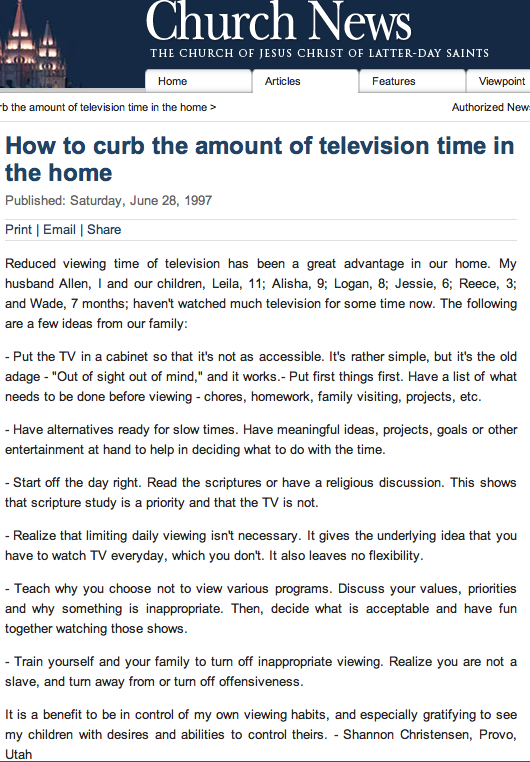


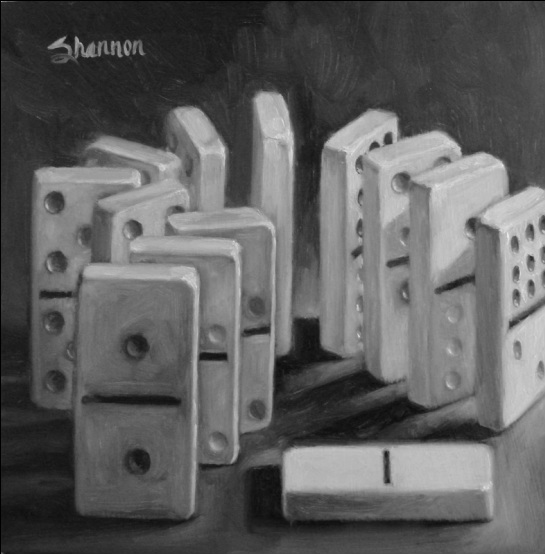

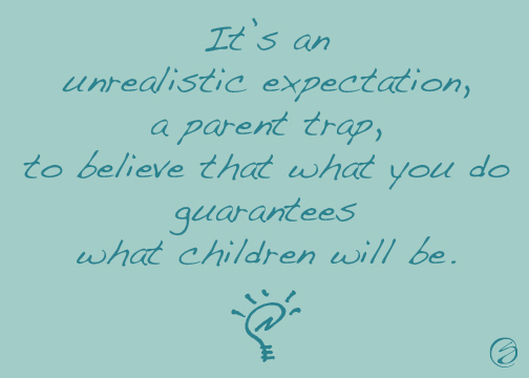
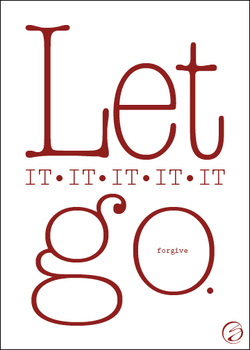


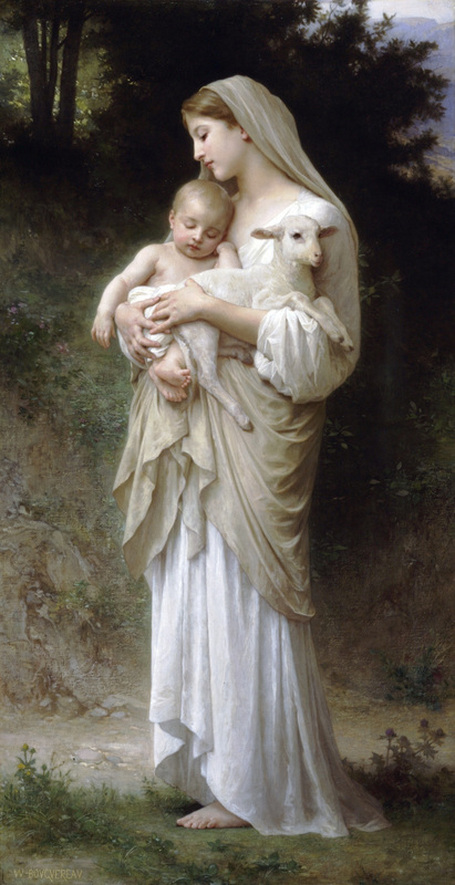

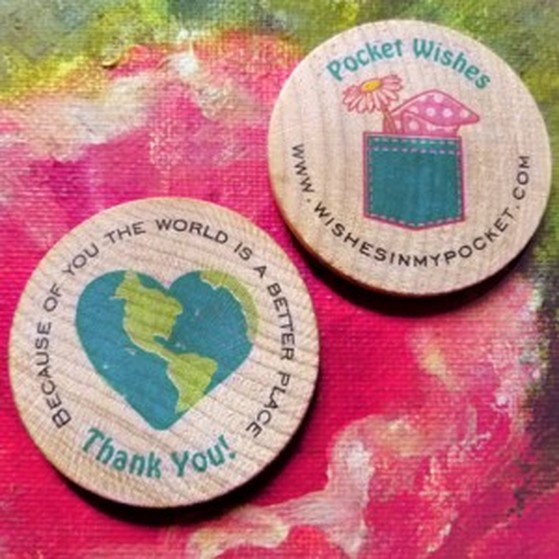

 RSS Feed
RSS Feed